Filter by
Found 12368 from your keywords: subject="The Armed Forces and ...
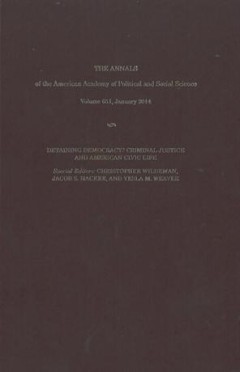
The ANNALS of the American Academy of Political and Social Science, Volume 67…
- Edition
- -
- ISBN/ISSN
- 0002-7162
- Collation
- -
- Series Title
- -
- Call Number
- -
- Edition
- -
- ISBN/ISSN
- 0002-7162
- Collation
- -
- Series Title
- -
- Call Number
- -

Evaluation, Volume 23, Number 3, July 2017
- Edition
- -
- ISBN/ISSN
- 13540688
- Collation
- -
- Series Title
- -
- Call Number
- -
- Edition
- -
- ISBN/ISSN
- 13540688
- Collation
- -
- Series Title
- -
- Call Number
- -

Sustainable Development Law & Policy, Volume 17, Number 2, Spring 2017
- Edition
- -
- ISBN/ISSN
- -
- Collation
- -
- Series Title
- -
- Call Number
- -
- Edition
- -
- ISBN/ISSN
- -
- Collation
- -
- Series Title
- -
- Call Number
- -
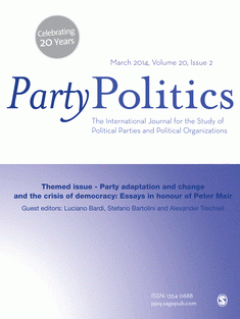
Party Politics, Volume 23, Number 4, July 2017
- Edition
- -
- ISBN/ISSN
- 13540688
- Collation
- -
- Series Title
- -
- Call Number
- -
- Edition
- -
- ISBN/ISSN
- 13540688
- Collation
- -
- Series Title
- -
- Call Number
- -

Administrative Science Quarterly, Volume 62, Number 3, September 2017
- Edition
- -
- ISBN/ISSN
- 0001-8392
- Collation
- -
- Series Title
- -
- Call Number
- -
- Edition
- -
- ISBN/ISSN
- 0001-8392
- Collation
- -
- Series Title
- -
- Call Number
- -
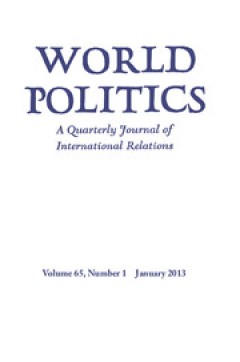
World Politics, Volume 69, Number 3, July 2017
- Edition
- -
- ISBN/ISSN
- 00438871
- Collation
- -
- Series Title
- -
- Call Number
- -
- Edition
- -
- ISBN/ISSN
- 00438871
- Collation
- -
- Series Title
- -
- Call Number
- -

Social Research: An International Quarterly, Volume 84, Number 1 Spring 2017
- Edition
- -
- ISBN/ISSN
- 0037-783X
- Collation
- -
- Series Title
- -
- Call Number
- -
- Edition
- -
- ISBN/ISSN
- 0037-783X
- Collation
- -
- Series Title
- -
- Call Number
- -

Environmental Ethics, Volume 38, Number 4, Winter 2016
- Edition
- -
- ISBN/ISSN
- 0163-4275
- Collation
- -
- Series Title
- -
- Call Number
- -
- Edition
- -
- ISBN/ISSN
- 0163-4275
- Collation
- -
- Series Title
- -
- Call Number
- -

Environmental Ethics, Volume 38, Number 3, Fall 2016
- Edition
- -
- ISBN/ISSN
- 0163-4275
- Collation
- -
- Series Title
- -
- Call Number
- -
- Edition
- -
- ISBN/ISSN
- 0163-4275
- Collation
- -
- Series Title
- -
- Call Number
- -

Journal of Social Policy, Volume 46, Part 3, July 2017
- Edition
- -
- ISBN/ISSN
- 0047-2794
- Collation
- -
- Series Title
- -
- Call Number
- -
- Edition
- -
- ISBN/ISSN
- 0047-2794
- Collation
- -
- Series Title
- -
- Call Number
- -
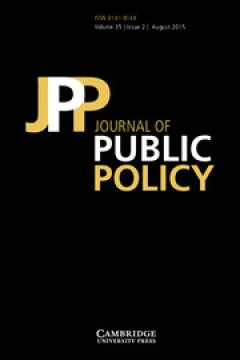
Journal of Public Policy, Volume 37, Issue 3, September 2017
- Edition
- -
- ISBN/ISSN
- 0141-814X
- Collation
- -
- Series Title
- -
- Call Number
- -
- Edition
- -
- ISBN/ISSN
- 0141-814X
- Collation
- -
- Series Title
- -
- Call Number
- -

Gender & Society, Volume 31, Number 3, June 2017
- Edition
- -
- ISBN/ISSN
- 08912432
- Collation
- -
- Series Title
- -
- Call Number
- -
- Edition
- -
- ISBN/ISSN
- 08912432
- Collation
- -
- Series Title
- -
- Call Number
- -

Politics & Gender, Volume 13, Number 1, March 2017
- Edition
- -
- ISBN/ISSN
- 1743-923X
- Collation
- -
- Series Title
- -
- Call Number
- -
- Edition
- -
- ISBN/ISSN
- 1743-923X
- Collation
- -
- Series Title
- -
- Call Number
- -

Politics & Gender, Volume 13, Number 2, June 2017
- Edition
- -
- ISBN/ISSN
- 1743-923X
- Collation
- -
- Series Title
- -
- Call Number
- -
- Edition
- -
- ISBN/ISSN
- 1743-923X
- Collation
- -
- Series Title
- -
- Call Number
- -

Gender & Society, Volume 31, Number 4, August 2017
- Edition
- -
- ISBN/ISSN
- 08912432
- Collation
- -
- Series Title
- -
- Call Number
- -
- Edition
- -
- ISBN/ISSN
- 08912432
- Collation
- -
- Series Title
- -
- Call Number
- -
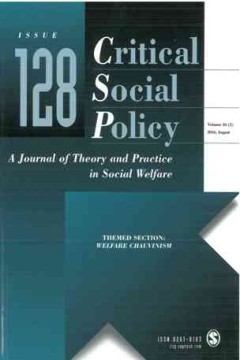
Critical Social Policy, Volume 37, Issue 132, Number 3, August 2017
- Edition
- -
- ISBN/ISSN
- 02610183
- Collation
- -
- Series Title
- -
- Call Number
- -
- Edition
- -
- ISBN/ISSN
- 02610183
- Collation
- -
- Series Title
- -
- Call Number
- -
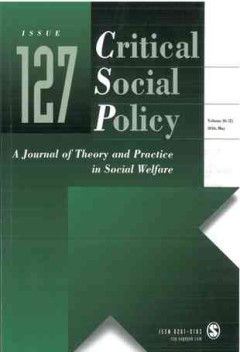
Critical Social Policy, Volume 37, Issue 131, Number 2, May 2017
- Edition
- -
- ISBN/ISSN
- 02610183
- Collation
- -
- Series Title
- -
- Call Number
- -
- Edition
- -
- ISBN/ISSN
- 02610183
- Collation
- -
- Series Title
- -
- Call Number
- -
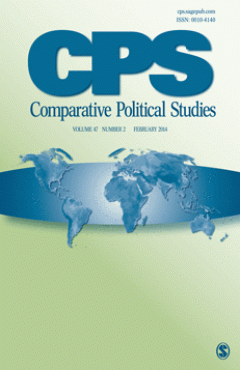
Comparative Political Studies, Volume 50, Number 10, September 2017
- Edition
- -
- ISBN/ISSN
- 00104140
- Collation
- -
- Series Title
- -
- Call Number
- -
- Edition
- -
- ISBN/ISSN
- 00104140
- Collation
- -
- Series Title
- -
- Call Number
- -

Comparative Political Studies, Volume 50, Number 8, July 2017
- Edition
- -
- ISBN/ISSN
- 00104140
- Collation
- -
- Series Title
- -
- Call Number
- -
- Edition
- -
- ISBN/ISSN
- 00104140
- Collation
- -
- Series Title
- -
- Call Number
- -

Comparative Political Studies, Volume 50, Number 7, June 2017
- Edition
- -
- ISBN/ISSN
- 00104140
- Collation
- -
- Series Title
- -
- Call Number
- -
- Edition
- -
- ISBN/ISSN
- 00104140
- Collation
- -
- Series Title
- -
- Call Number
- -
 Computer Science, Information & General Works
Computer Science, Information & General Works  Philosophy & Psychology
Philosophy & Psychology  Religion
Religion  Social Sciences
Social Sciences  Language
Language  Pure Science
Pure Science  Applied Sciences
Applied Sciences  Art & Recreation
Art & Recreation  Literature
Literature  History & Geography
History & Geography